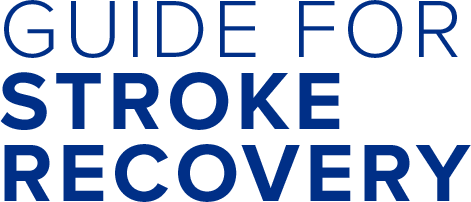How do I know if I am ready to return to work?

Your readiness depends on:
- How you feel
- How the stroke has affected you
- The type of work you do
Your stroke may have affected your body and mind. As well as physical changes, you may:
- feel tired
- have memory loss
- have trouble concentrating
- find it hard to plan and organize tasks
- have changes with your vision
- find it hard to speak or understand someone else
Allow enough time for your recovery. Many things will get better with time.
Try to be patient with yourself. Try not to put pressure on yourself to perform at the same level you did before your stroke.
When you feel ready, talk to your healthcare team about going back to work. Together you can decide if you are ready to go back to work. They can also help talk to your workplace about what supports you need to return.
Your employer is responsible for making reasonable accommodations to help you, if you are returning to the same job.
What might I need to change when I return to work?
This depends on how the stroke has affected you. You may need to:
- Learn how to do things with 1 hand
- Work while sitting instead of standing
- Change the hours you work
- Adjust the type of work you were doing before
Your healthcare team and employer can work with you to come up with a plan.
How do I know if I am ready and able to return to work?
The Southwestern Ontario Stroke Network has created a tool kit that supports persons with stroke to return to work. The Return to Work Tool Kit includes a self-assessment guide and information on available resources.
Which members of my healthcare team can help me plan for my return to work?
Members of your healthcare team can help plan for your return to work include:
- Social Worker. They can help you find community resources and supports related to money and work.
- Occupational Therapist. They can help you improve your memory, planning, organizing and fine motor skills. They help you figure out if any changes need to be made to your work space for a safe return to work.
- Physiotherapist. They can help to support with the physical aspects of returning to work.
- Vocational Rehabilitation Therapist. They help train you with new skills or trades to help you find new paid jobs.
- Doctor. They can help provide guidelines or restrictions on returning to work.
- Neuropsychologist. They can do special cognitive testing to help support your return to work.
What if I cannot return to the same type of work?

Your healthcare team can help you think about different work options. Programs are available to help you gain new skills, training and find work.
Below are examples of organizations that can help:
- Disability Vocational Rehabilitation Program
- Canadian Council on Rehabilitation and Work
- March of Dimes Canada – Employment Services
Click here to learn about Ron’s experience getting back to work.
Having read the information in this section, consider the following
- Is returning to work or school important to me?
- Am I able to return to work or school?
- Do I know what things might get in the way of returning to work or school (for example: problems concentrating, fatigue, mobility or communication)?
- Do I need to be assessed for my ability to return to work or school?
- Do I know who to talk to about resuming classes?
- Do I need to see a vocational rehab therapist?
- Is my workplace or school accessible?
- Have I talked with my boss about what will be expected of me if/when I return to work?
- Does my work space need to be modified so I can return to work?
- Does my job need to be modified (for example: flexible hours, work from home or different responsibilities)?
- Do I know when I can return to work or school?
- If I can’t return to my current job, do I know what other options I have (for example: train for another job, return to school, or retire)?
- I would like to volunteer. Do I know who to talk to about this?
